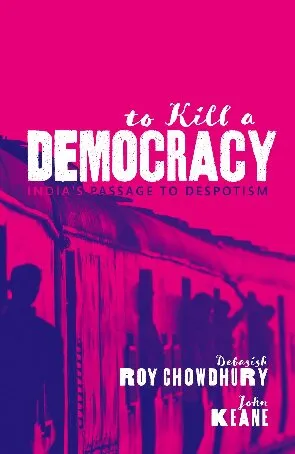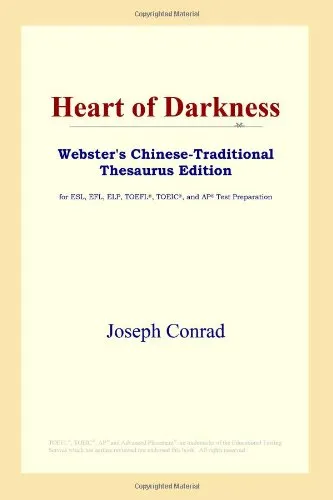To Kill A Democracy: India's Passage to Despotism
4.3
بر اساس نظر کاربران

شما میتونید سوالاتتون در باره کتاب رو از هوش مصنوعیش بعد از ورود بپرسید
هر دانلود یا پرسش از هوش مصنوعی 2 امتیاز لازم دارد، برای بدست آوردن امتیاز رایگان، به صفحه ی راهنمای امتیازات سر بزنید و یک سری کار ارزشمند انجام بدینکتاب های مرتبط:
معرفی کتاب 'To Kill A Democracy: India's Passage to Despotism'
کتاب 'To Kill A Democracy' اثر دباشیش روی چودری و جان کین نگاهی عمیق و جامع به گذار دموکراسی هند به سمت خودکامگی دارد. این اثر تحلیل دقیقی از تغییرات سیاسی، اجتماعی و اقتصادی ارائه میدهد که به کمرنگ شدن دموکراسی در یکی از پرجمعیتترین کشورهای جهان منجر شده است.
خلاصهای از کتاب
این کتاب یک تحلیل جامع از روند تضعیف دموکراسی در هند است. نویسندگان بررسی کردهاند که چگونه نهادهای دموکراتیک هند به تدریج قدرت خود را از دست داده و فضا برای رشد خودکامهها و سیاستهای اقتدارگرا باز شده است. این اثر به بررسی نقش دولتهای محلی، جامعه مدنی، رسانهها، و سیستم قضایی در حفظ و تقویت یا تضعیف دموکراسی میپردازد.
نویسندگان توضیح میدهند که چگونه سیاستهای اقتصادی، فشارهای اجتماعی و نژادی، و نیروهای جهانی بر ساختار دموکراتیک هند تأثیر گذاشته است. آنها با ارائه مثالهایی از گذشته و حال، چگونگی حرکت جامعه هند به سوی خودکامگی را تحلیل میکنند.
نکات کلیدی
- بررسی دقیق ضعفهای ساختاری نهادهای دموکراتیک هند.
- تحلیل تأثیر سیاستهای اقتصادی و اجتماعی بر دموکراسی.
- توجه به رشد سیاستهای ملیگرایانه و اقتدارگرا.
- آگاهیبخشی به خوانندگان درباره اهمیت حمایت از اصول دموکراتیک.
نقلقولهایی معروف از کتاب
"دموکراسی همیشه در فضای باز و شفاف تقویت میشود، نه در محیطی که بر اساس ترس و تهدید ساخته شده است."
"خودکامگی وقتی رشد میکند که مردم به نهادهای دموکراتیک خود باور نداشته باشند و قدرت در دستان محدود افراد متمرکز شود."
چرا این کتاب اهمیت دارد؟
در جهانی که خودکامگیها رو به افزایش هستند و دموکراسیها تحت فشار قرار گرفتهاند، کتاب 'To Kill A Democracy' به عنوان یک هشداری زنده از خطرات عدم توجه به اصول بنیادی دموکراسی عمل میکند. این اثر برای سیاستگذاران، دانشجویان علوم سیاسی و اجتماعی، و تمامی علاقهمندان به فهم بهتر از جامعۀ جهانی و دینامیکهای سیاسی آن اساسی است.
این کتاب نه تنها شرایط فعلی هند را بررسی میکند بلکه به موضوعات گستردهتری همچون ارتباط قدرت و دموکراسی و چالشهای سیستمهای حکومتی در برابر فشارهای داخلی و خارجی میپردازد. 'To Kill A Democracy' به ما نشان میدهد که حفظ دموکراسی نیازمند هوشیاری و تلاش همگان است.
Introduction to 'To Kill A Democracy: India's Passage to Despotism'
In 'To Kill A Democracy: India's Passage to Despotism', authors Debasish Roy Chowdhury and John Keane embark on a compelling exploration of the perilous decline of democratic norms in India. This book serves as both a rigorous examination and a poignant cautionary tale, delving into the complex interplay of political, economic, and social forces that threaten to unravel the world's largest democracy.
This seminal work captures the urgency of the democratic crisis not just in India, but as an exemplar of the global challenges that democracies face. It scrutinizes the slow erosion of democratic institutions, the consolidation of power, and the creeping tide of authoritarianism, offering both a bird’s-eye view and a granular analysis of India’s democratic backsliding.
Summary of the Book
The book crafts a thorough narrative around the historical, political, and socio-economic dynamics that have shaped India's democratic journey. Chowdhury and Keane meticulously examine the weakening of institutions that were once the pillars of Indian democracy, such as the judiciary, the media, and the election commissions. By documenting these systemic failures and their causes, the authors argue that democracy in India is not killed in a swift coup, but by a series of incremental changes that pave the way for despotism.
The narrative unfolds across various terrains, from the corridors of political power in Delhi to the rural heartlands, illustrating the disconnect between the aspirations of ordinary citizens and the increasingly autocratic political elite. The book highlights how economic inequalities and social divisions are manipulated by those in power to maintain control, further endangering democratic ideals.
Key Takeaways
- The fragility of democracy: Democracy is vulnerable to slow and insidious erosion rather than outright destruction.
- Institutional decay: The degradation of institutions crucial for democratic governance can lead to autocratic rule.
- Role of media: The compromising of media independence is a significant factor in democratic backsliding.
- Economic disparity: Growing inequality serves as a tool for authoritarian regimes to consolidate power.
- Global relevance: The issues addressed are not unique to India, making the book a critical read for understanding global democratic decline.
Famous Quotes from the Book
The book is peppered with insightful observations and poignant reflections, such as:
"Democracy dies not with a bang, but with the slow and insidious crumbling of its foundations."
"The soul of a democracy resides in the vitality of its institutions, and their decay spells doom for its spirit."
"In the smoke and mirrors of power, the true casualty is often truth itself."
Why This Book Matters
'To Kill A Democracy' is an urgent wake-up call, directed not just at Indian society but at the global community grappling with similar challenges to democratic integrity. It matters because it encapsulates a universal narrative of how democracies can be weakened from within. The book underscores the necessity for vigilance, citizen engagement, and institutional resilience to safeguard democratic ideals.
As a treatise on democracy's vulnerability, the book is essential reading for anyone interested in understanding the dynamics of political power and its impact on freedom and rights. It challenges readers to reflect on the value of democracy and the collective responsibility to defend it from those who seek to degrade its principles for personal or political gain.
دانلود رایگان مستقیم
You Can Download this book after Login
دسترسی به کتابها از طریق پلتفرمهای قانونی و کتابخانههای عمومی نه تنها از حقوق نویسندگان و ناشران حمایت میکند، بلکه به پایداری فرهنگ کتابخوانی نیز کمک میرساند. پیش از دانلود، لحظهای به بررسی این گزینهها فکر کنید.
این کتاب رو در پلتفرم های دیگه ببینید
WorldCat به شما کمک میکنه تا کتاب ها رو در کتابخانه های سراسر دنیا پیدا کنید
امتیازها، نظرات تخصصی و صحبت ها درباره کتاب را در Goodreads ببینید
کتابهای کمیاب یا دست دوم را در AbeBooks پیدا کنید و بخرید



